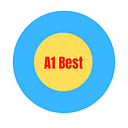Both WordPress and Blogger are popular blogging platforms that offer a range of features and tools for creating and managing a blog. However, they have some key differences that may make one more suitable for your needs than the other.
WordPress is a content management system (CMS) that is widely used for creating websites and blogs. It is an open-source platform, which means that the source code is available for anyone to use and modify. WordPress is known for its flexibility and customization options, which allow you to create a wide range of websites and blogs, from simple personal blogs to complex e-commerce stores.
Some key features of WordPress include:
Themes: WordPress has a large number of themes that allow you to change the appearance of your website with just a few clicks. There are themes available for a wide range of purposes, including blogging, business, e-commerce, and more.
Plugins: WordPress has a large plugin repository that allows you to add additional functionality to your website. There are plugins available for almost any purpose, from SEO to social media integration to security.
Media management: WordPress allows you to easily upload and manage media files, such as images and videos, on your website.
User management: WordPress has built-in user management tools that allow you to create and manage multiple user accounts for your website.
SEO: WordPress includes a range of SEO tools and features that can help improve the search engine ranking of your website.
Overall, WordPress is a powerful and flexible platform that is suitable for a wide range of websites and blogs.
Blogger is a blogging platform owned by Google that allows users to create and manage a blog. It is a simple and easy-to-use platform that requires no technical knowledge to get started. Blogger is a good choice for users who want to create a basic blog without the need for advanced customization or features.
Some key features of Blogger include:
Templates: Blogger offers a range of templates that allow you to change the appearance of your blog with just a few clicks.
Blogging tools: Blogger includes a range of tools for creating and managing blog posts, such as a WYSIWYG editor and the ability to schedule posts.
Media management: Blogger allows you to easily upload and manage media files, such as images and videos, on your blog.
User management: Blogger has built-in user management tools that allow you to create and manage multiple user accounts for your blog.
SEO: Blogger includes basic SEO tools and features that can help improve the search engine ranking of your blog.
Overall, Blogger is a good choice for users who want a simple and easy-to-use platform for creating a basic blog. It is not as powerful or customizable as other blogging platforms, such as WordPress, but it is a good choice for users who don’t need advanced features.
WordPress offers a large number of themes and plugins that allow you to customize the appearance and functionality of your blog. WordPress is more powerful and flexible than Blogger, but it also requires more technical knowledge to set up and manage.
Blogger is a blogging platform owned by Google that is easy to use and requires no technical knowledge to get started. It offers a range of templates and features for creating and managing a blog, but it is not as customizable as WordPress. Blogger is a good choice for users who want an easy-to-use platform for creating a basic blog.
Ultimately, the best platform for you will depend on your specific needs and goals. If you want a powerful, customizable platform that you can use to create any type of website or blog, WordPress is a good choice. If you just want a simple platform for creating a basic blog, Blogger may be a better option.
